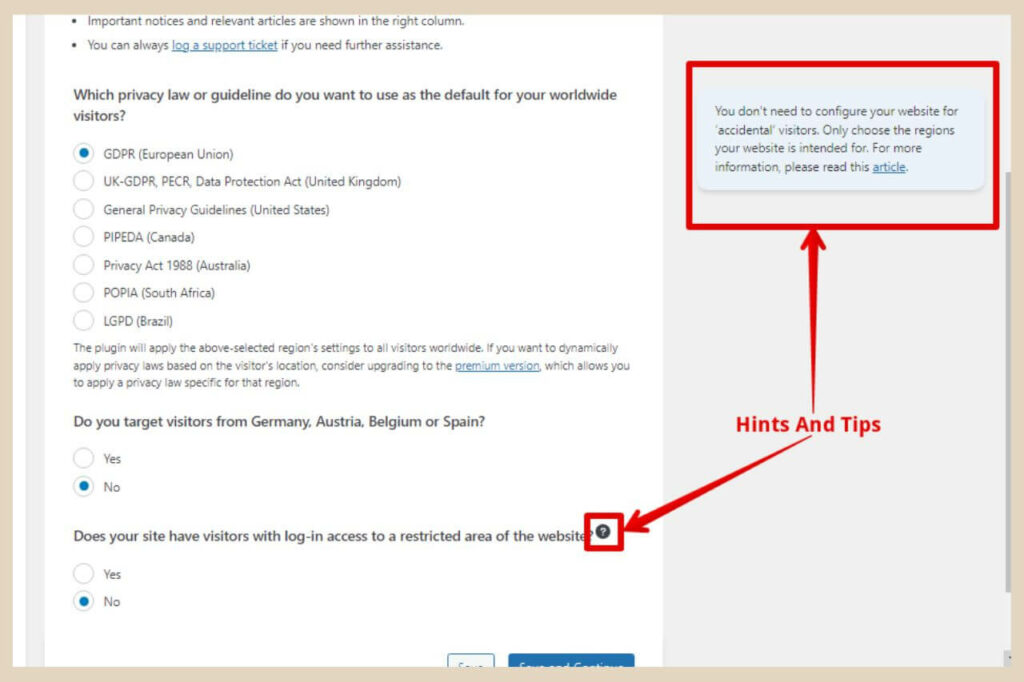
Privacy Law Tips
Privacy laws play a pivotal role in safeguarding individuals’ personal information and regulating how organizations handle data. In this article, we explore essential tips for navigating privacy laws successfully, ensuring compliance and protecting the privacy rights of individuals.
Understanding Privacy Regulations
A fundamental aspect of compliance with privacy laws is understanding the relevant regulations. Different regions and jurisdictions have varying privacy laws, such as the GDPR in Europe or CCPA in California. Stay informed about the specific regulations that apply to your organization, and regularly update your knowledge to adapt to any legal changes.
Data Mapping and Inventory
Conducting a thorough data mapping and inventory process is crucial for privacy compliance. Identify and document the types of data your organization collects, processes, and stores. Understanding the data lifecycle enables you to implement appropriate security measures and ensures transparency about the information you handle.
Implementing Robust Security Measures
Protecting sensitive information requires robust security measures. Encryption, access controls, and secure storage are essential components of a comprehensive security strategy. Regularly assess and update your security protocols to stay ahead of potential threats, and conduct employee training to promote a culture of data security awareness.
Privacy by Design Principles
Adopting privacy by design principles involves integrating privacy considerations into the development of products, services, and systems from the outset. This proactive approach ensures that privacy is a fundamental component of your operations, minimizing the risk of non-compliance and enhancing your organization’s overall data protection posture.
Transparency and Consent Management
Transparent communication with individuals about how their data will be used is a key principle of privacy compliance. Implement clear and concise privacy policies, and establish robust consent management processes. Obtain explicit consent before collecting and processing personal information, and provide individuals with options to control their data.
Data Subject Rights and Requests
Privacy laws grant individuals certain rights regarding their personal data. Understand and respect these rights, including the right to access, rectify, and delete personal information. Establish processes for handling data subject requests promptly and ensure that your organization is equipped to address these rights in accordance with legal requirements.
Regular Privacy Audits and Assessments
Regular privacy audits and assessments are crucial for evaluating and improving your privacy practices. Conduct internal assessments to identify compliance gaps, and enlist external experts if necessary. Regular reviews ensure that your organization stays aligned with evolving privacy laws and maintains a proactive approach to data protection.
Employee Training and Awareness
Employees are often the first line of defense against privacy risks. Provide comprehensive training on privacy policies, data handling procedures, and the importance of confidentiality. Foster a culture of privacy awareness within your organization, empowering employees to recognize and mitigate potential privacy threats.
Incident Response Planning
Despite robust preventive measures, privacy incidents may still occur. Having a well-defined incident response plan is essential for mitigating the impact of a data breach. Establish clear procedures for detecting, reporting, and responding to incidents, and regularly test the effectiveness of your incident response protocols through simulated exercises.
Collaboration with Legal Experts
Navigating the complexities of privacy law often requires collaboration with legal experts. Engage with privacy attorneys or consultants to ensure that your organization’s practices align with legal requirements. Legal professionals can provide valuable insights, assist with compliance assessments, and guide your organization through any legal challenges.
For a comprehensive guide on privacy law tips and best practices, visit Privacy Law Tips. This resource offers additional insights and practical advice to further enhance your organization’s privacy compliance efforts. By incorporating these tips into your approach, you can foster a privacy-conscious culture and navigate the evolving landscape of privacy laws with confidence.


